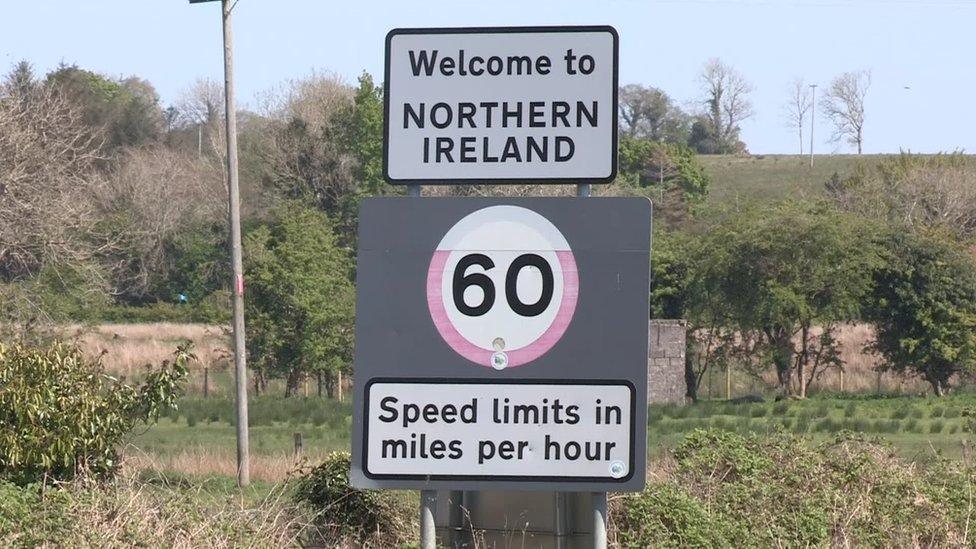Brexit brokers and backstop ‘bingo’
- Published
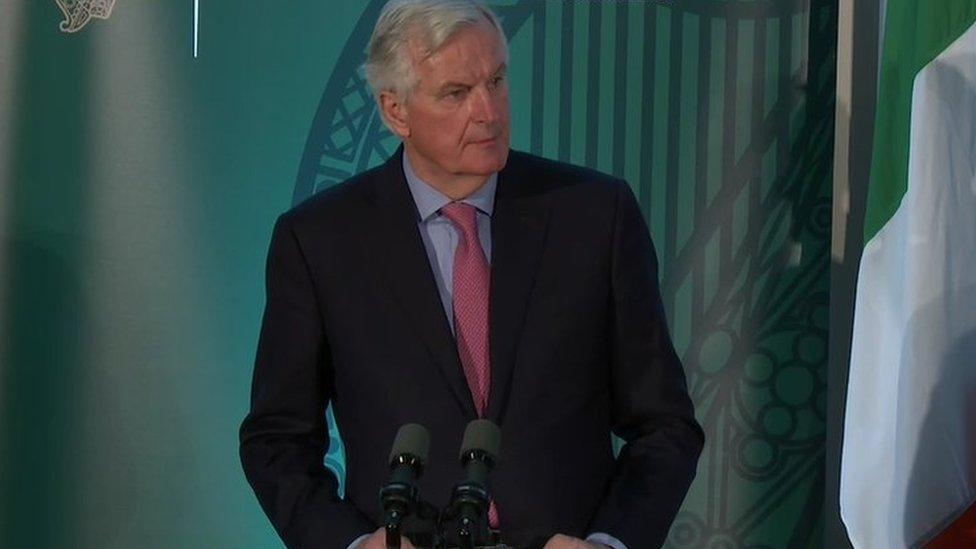
EU negotiator Michel Barnier denied he had acted aggressively to unionists
The Democratic Unionist Party (DUP) may not have been at Monday's all-island Brexit forum in Dundalk, but its presence was still very much felt.
Just hours after the party's leader, Arlene Foster, gave an interview to the BBC and accused the EU's Brexit negotiator of not being an "honest broker" in the talks and misunderstanding the unionist position, all eyes were on Michel Barnier as the press conference began.
His response was brief - but robust.
He said he was not ready to engage in "polemics" with Mrs Foster and denied that he had ever acted aggressively towards Northern Ireland unionists during the negotiations, but some may feel his words came too late.
He also told reporters his "door is open" to Mrs Foster and the DUP - we'll see if he holds it open for them or slams it shut on Thursday, when the two sides are expected to meet.
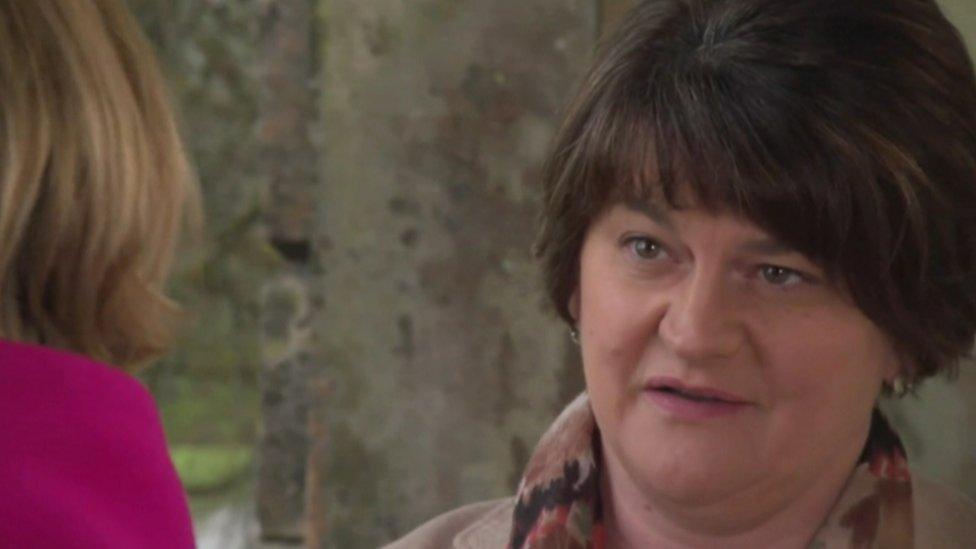
The DUP leader said Michel Barnier was not an 'honest broker'
While there were representatives from Sinn Féin, the SDLP and Alliance speaking at the forum, the Ulster Unionists were nowhere in sight either.
Like the DUP, the party feels the forum, which has now met four times and was set up after the EU referendum result in 2016, is simply a "talking shop" and that there is no need to attend when there are already cross-border cooperation bodies to examine Brexit.
For those who were there, however, the forum represented a chance for hundreds of political and business delegates and students from north and south to hear directly from the EU's main man.
It almost became Brexit bingo - as journalists lost count of how many times Michel Barnier referenced the "backstop" option for the Irish border.
The backstop would mean that in the absence of any other solution, Northern Ireland, or the UK as a whole, would align with EU rules required to support north-south cooperation and an all-island economy.
While in principle the UK signed up to this option, precise detail on it has yet to appear.
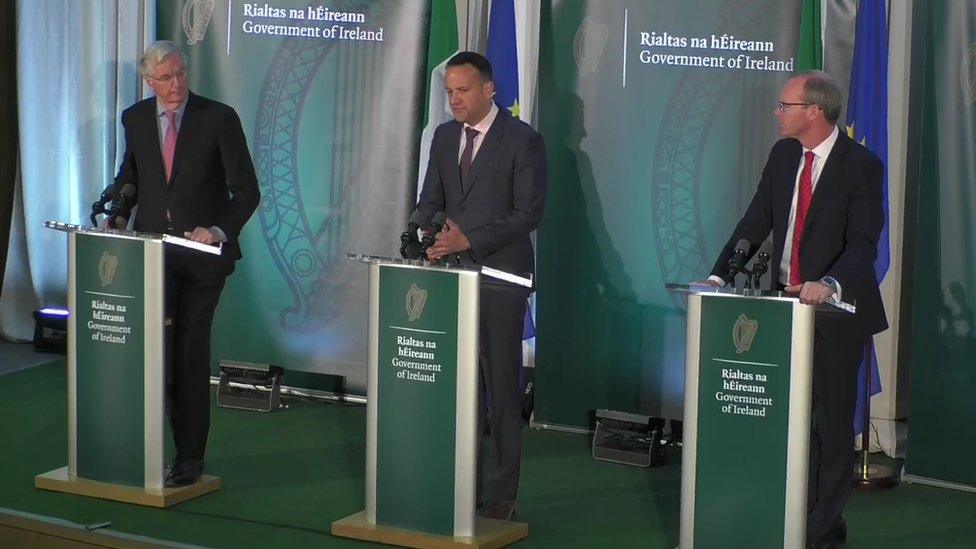
Michel Barnier, Leo Varadkar and Simon Coveney held a joint press conference in in Dundalk
Mr Barnier's three points were:
The UK government has agreed to a backstop and knows that without it there is no withdrawal agreement
The EU is not using the backstop as a negotiating tactic
The backstop is necessary to protect the integrity of the customs union and single market
In brief - the backstop was agreed so let's get on with it.
That call was echoed by the Taoiseach (Irish prime minister), Leo Varadkar, and Irish Foreign Minister Simon Coveney, who hosted Monday's event.
They were also keen to stress that "meaningful progress" on the border issue needs to be made by June's European Council summit, otherwise getting the withdrawal agreement ready by October could prove difficult.
The audience at Monday's event applauded loudly for Michel Barnier and the Irish government, but it felt a bit like a Brexit bubble - all the more noticeable as students at the Dundalk Institute of Technology pushed their way past the media scrum - more interested in getting to class than in the minutiae of Brexit.
- Published30 April 2018
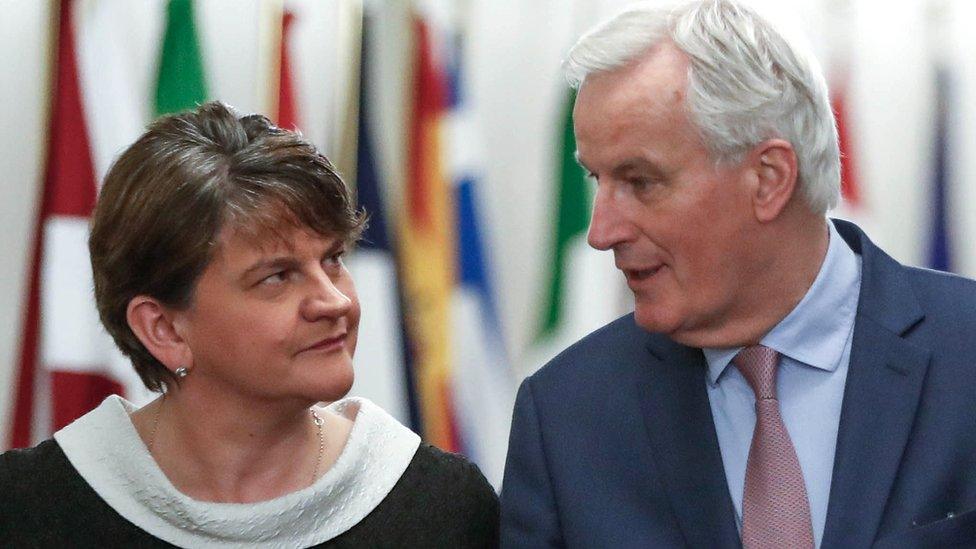
- Published30 April 2018
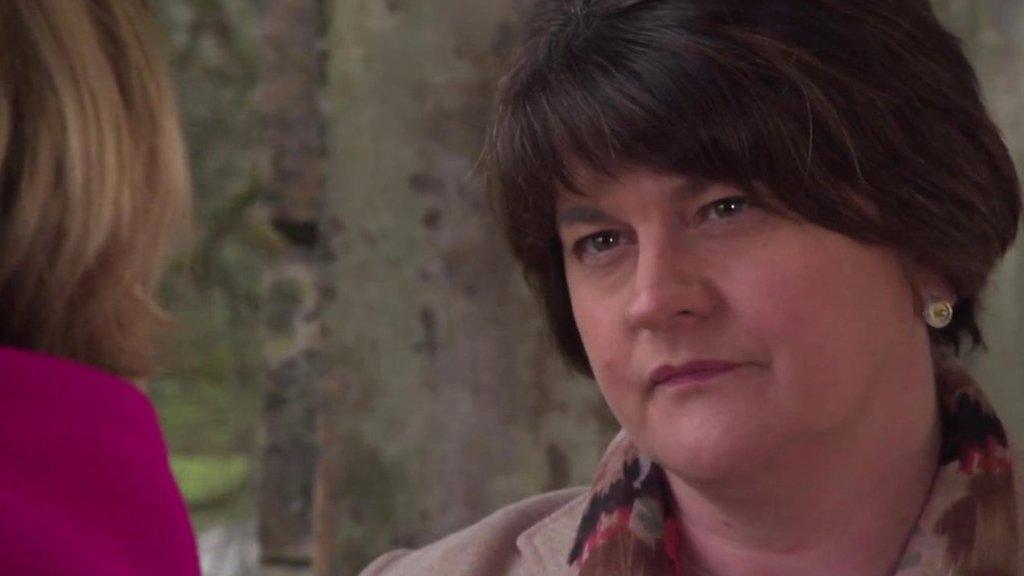
- Published26 April 2018
